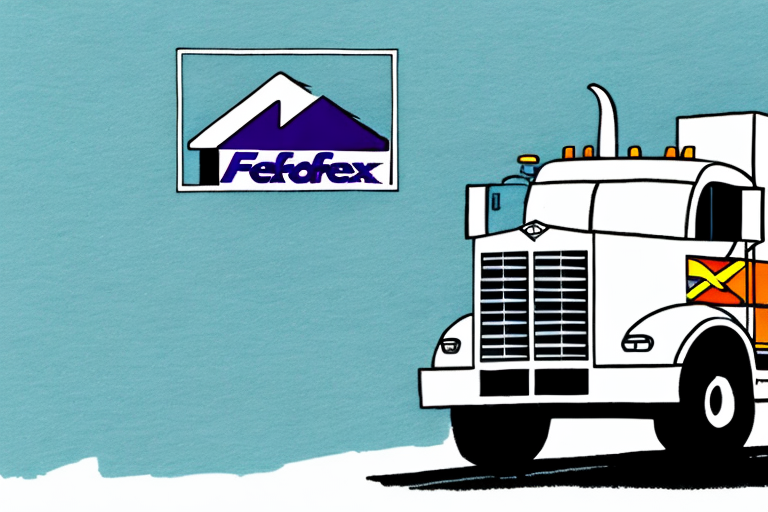FedEx to Stop Delivery: What You Need to Know
In recent developments, FedEx announced that it will no longer provide ground delivery services for Amazon. This strategic decision follows reports of Amazon expanding its own delivery network, potentially challenging FedEx's traditional business model. This move has significant implications for businesses and consumers relying on FedEx for their shipping needs. This article delves into the reasons behind FedEx's decision and explores its broader impact on the logistics and e-commerce industries.
Reasons Behind FedEx's Decision
Investment in E-Commerce Growth
FedEx has emphasized that the decision to cease ground delivery services for Amazon is part of a broader strategy to invest in its rapidly growing e-commerce sector. By reallocating resources away from Amazon, FedEx aims to strengthen its competitive position against other e-commerce giants like Walmart and Target. This strategic shift is intended to enhance FedEx's delivery capabilities, enabling faster and more efficient services for a diverse range of e-commerce retailers.
Rising Competition in the Delivery Industry
The delivery landscape has become increasingly competitive with the emergence of new players such as Uber and Amazon's own delivery services. FedEx recognizes the need to adapt to these market changes to maintain its leadership position. By focusing on its internal e-commerce initiatives, FedEx seeks to innovate and offer superior delivery solutions that can meet the evolving demands of the market.
Impact on Businesses and Consumers
Effects on Businesses
Businesses that have historically relied on FedEx for their shipping needs will need to explore alternative delivery options. This transition could lead to increased shipping costs and longer delivery times as companies seek new couriers that can match FedEx's service standards. Additionally, businesses may need to renegotiate contracts and adapt their logistics strategies to accommodate new delivery partners.
Effects on Consumers
For consumers, the impact largely depends on their preferred shopping platforms. Those who primarily use Amazon may experience longer delivery times and potentially higher shipping fees due to the shift in FedEx's service offerings. On the other hand, consumers shopping with other e-commerce retailers might benefit from faster delivery services as FedEx channels its resources to support a wider array of clients.
Impact on Amazon's Competitors
With FedEx stepping back from Amazon's ground delivery services, competitors in the e-commerce space might find new opportunities to negotiate better shipping rates and improve delivery times. This could foster a more competitive environment, encouraging retailers to enhance their shipping options to attract and retain customers.
Alternatives to FedEx for Shipping and Delivery
Major Competitors Overview
- UPS: Known for its reliable delivery services and extensive global network.
- DHL: Offers specialized international shipping solutions.
- United States Postal Service (USPS): Provides cost-effective shipping options, especially for smaller packages.
Amazon Shipping
Amazon Shipping is an alternative offered by Amazon for businesses to dispatch their products directly to customers. Available in select regions, this service provides competitive pricing and expedited delivery options, making it a viable alternative for businesses looking to maintain seamless delivery operations.
International Shipping Options
For businesses and consumers requiring international shipping, options such as DHL, TNT, and Aramex offer comprehensive services to over 200 countries worldwide. These couriers provide specialized solutions to meet the diverse needs of international shipments.
Financial Analysis of FedEx's Strategic Shift
Recent Financial Performance
FedEx has demonstrated steady revenue growth over recent years, increasing from $60.3 billion in 2016 to $69.7 billion in 2019. However, the company has faced declining profit margins, prompting strategic shifts to bolster its financial health.
Strategic Acquisitions and Investments
FedEx's acquisition of TNT Express in 2016 expanded its European presence and opened access to new markets. Additionally, investments in cutting-edge technologies such as autonomous delivery vehicles and drones indicate FedEx's commitment to innovation and operational efficiency.
The Future of Shipping and Delivery: Trends and Predictions
Technological Advancements
The shipping and delivery industry is poised for significant technological advancements. The integration of drones and autonomous vehicles is expected to revolutionize delivery methods, enhancing speed and reducing operational costs. Moreover, advancements in tracking technology will provide customers with real-time updates, improving overall service transparency.
Sustainability in Delivery Services
With growing environmental concerns, sustainability is becoming a key focus in the logistics sector. Companies are adopting eco-friendly packaging materials and investing in electric or hybrid delivery vehicles to reduce their carbon footprint. The exploration of alternative fuels, such as biofuels and hydrogen, is also gaining traction as part of broader sustainability initiatives.
Preparing for Changes in FedEx's Delivery Services
Businesses and consumers reliant on FedEx should proactively seek alternative delivery solutions to mitigate potential disruptions. Early research and transition planning can help avoid increased shipping costs and ensure continuity in delivery operations. Evaluating and selecting new couriers based on efficiency, cost, and service reliability is crucial for a seamless transition.
Expert Insights and Customer Reactions
Industry Experts' Opinions
Experts in the shipping and logistics industry have varied perspectives on FedEx's decision. While some view it as a strategic move to strengthen FedEx's competitive edge in e-commerce, others express concerns about the potential challenges businesses and consumers may face during the transition.
Customer Feedback
Customers have expressed mixed reactions to FedEx's announcement. Many are apprehensive about the possible delays and increased costs associated with switching delivery services. However, there is optimism that FedEx's renewed focus on its core e-commerce services may lead to improved delivery experiences in the long term.
Conclusion
FedEx's decision to discontinue ground delivery services for Amazon marks a significant shift in the logistics and e-commerce landscape. While this move aims to enhance FedEx's competitive positioning and invest in future growth areas, it poses challenges for businesses and consumers dependent on reliable shipping services. By exploring alternative delivery options and staying informed about industry trends, stakeholders can navigate the evolving delivery ecosystem effectively.








